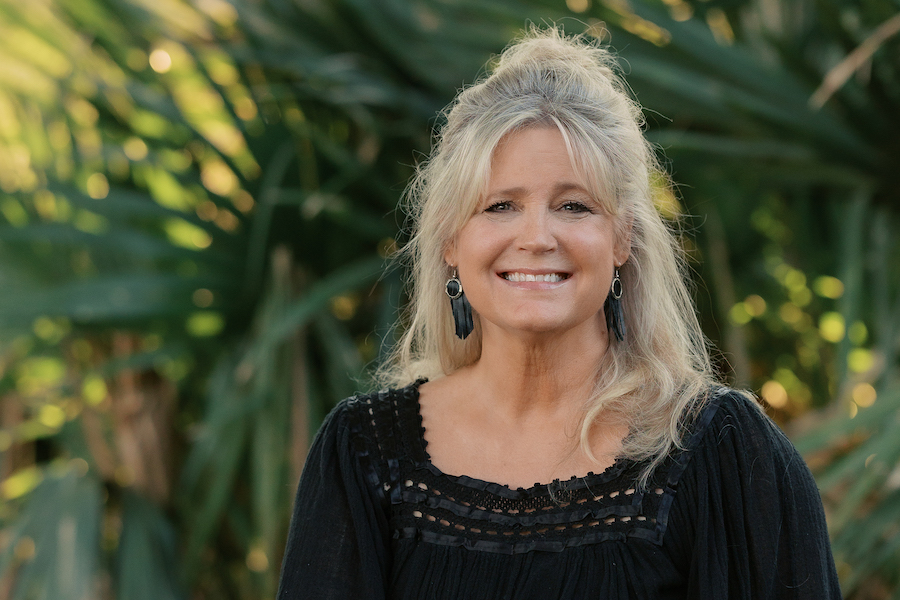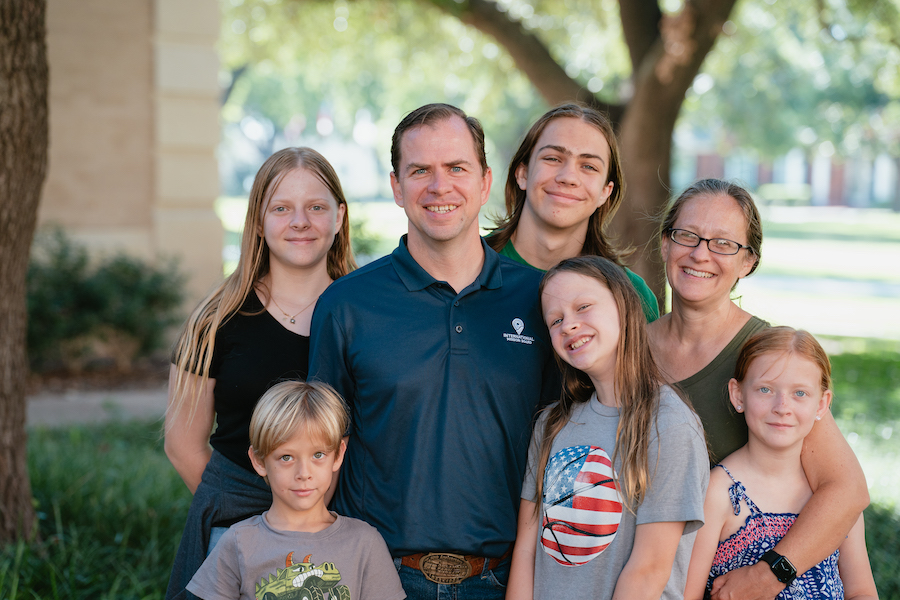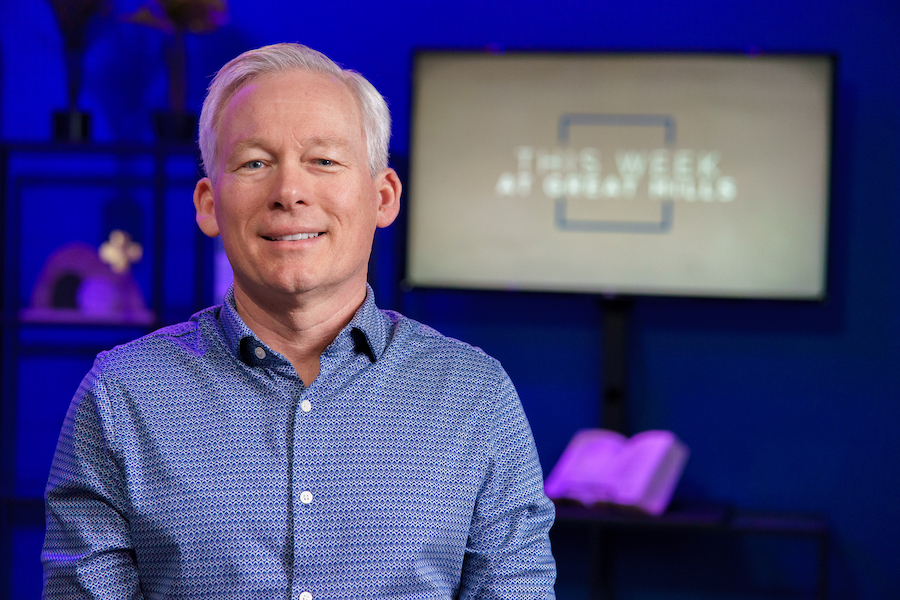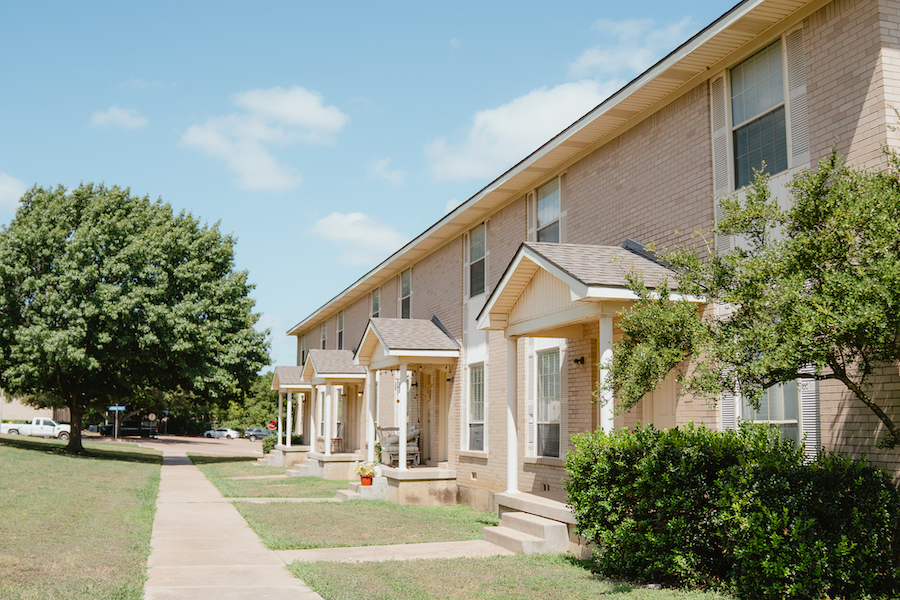Running on empty
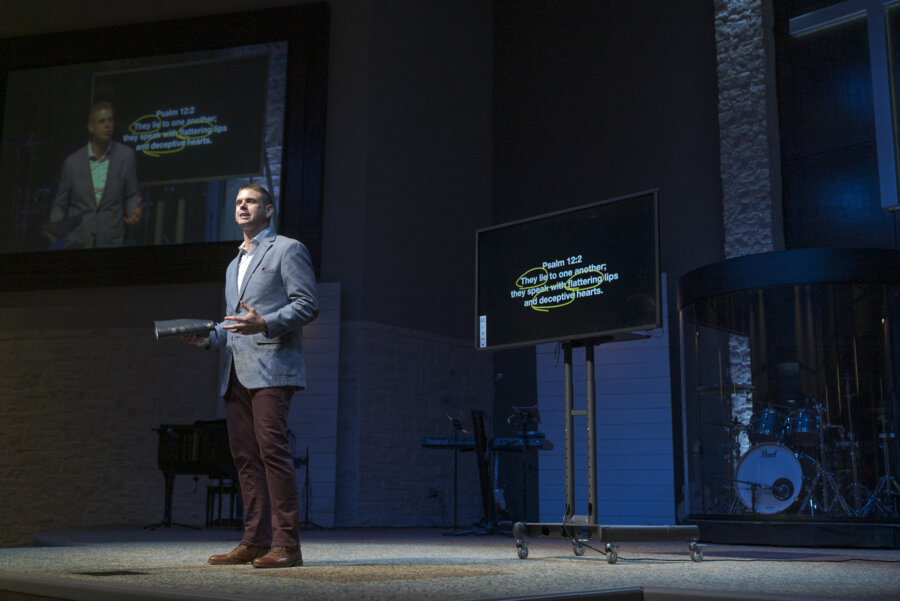

With less than three miles left to complete an ultra-marathon run from one rim of the Grand Canyon to another and then back to the rim where he started, Michael Criner (’07, ’16) was certain he would not be able to finish. Having already traveled more than 40 miles, including more than 10,000 feet of elevation change over more than 14 hours, Criner said he hit a wall. His legs were like jelly. He was spent.
And as he looked up toward the final stretch of the Bright Angel Trail, a trail characterized by switchbacks tightly hugging the south wall of the Grand Canyon, he felt the Lord impress upon his heart a simple phrase, “At the rate you’re going, you will not make it.”
Criner knew if he were going to finish that challenge, he would need help. A friend who had run the same trail a day earlier came two and half miles down the trail to physically help him finish the final stretch. Shouldering his pack for him and sitting with him to recover at the end of each switchback, Criner’s new friend helped him finish just as daylight began to fade. Roughly 10 months later, Criner would look back on that moment and realize the Lord wasn’t only speaking to him about climbing out of the Grand Canyon when He told him, “At the rate you’re going, you will not make it.”
HE WAS ‘JUST’ AN EVANGELIST
When Ed Hecht, Criner’s maternal grandfather, moved to Dallas, Texas, with his bride, Janie, they determined to join First Baptist Church of Dallas where W.A. Criswell served as pastor at the time. After he walked the aisle one Sunday to declare his intention to join the church, Hecht was asked about his relationship with Lord. Unaware of his own lostness, Hecht met with Criswell later that afternoon in the pastor’s office and he gave his life to Christ.
“He moved to Dallas and was an insurance salesman his whole career, but his real passion was biblical counseling,” Criner recalls. “He worked the lines at First Dallas, you know the call center, and would witness to people. He probably led thousands of people to Jesus; there’s no telling how many.”
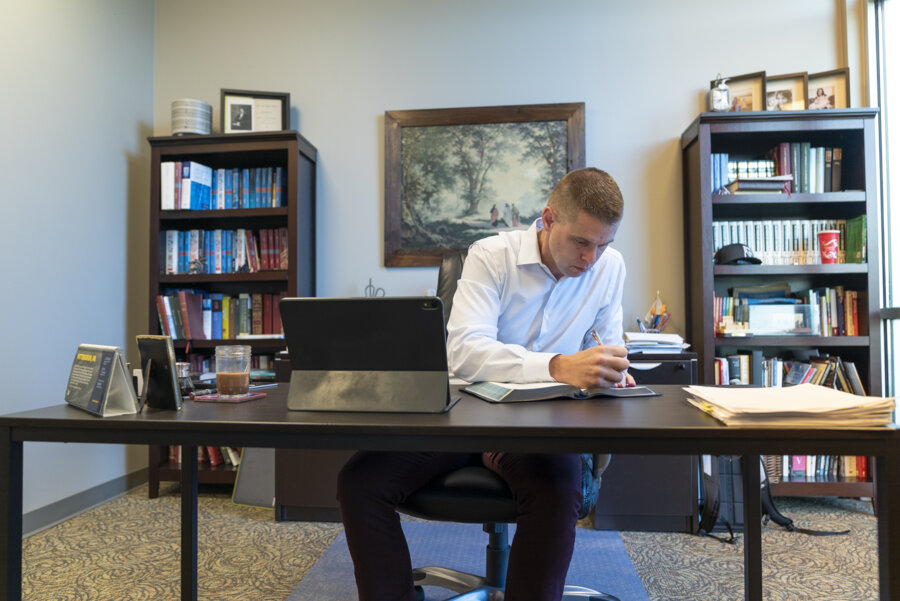
One of the many people whom Hecht led to the Lord was his grandson, Criner, who now serves as lead pastor at Rock Hill Baptist Church in Brownsboro, Texas. In the small office at his home in East Texas, Criner often finalizes preparation for his weekly sermons, and a wallet-sized picture of his grandfather perches just above his head on a shelf full of books and other memorabilia.
“He had a profound influence on my life,” Criner said. “He led me to Jesus, discipled me in Jesus, paid for me to go to seminary to learn more about Jesus. That’s his legacy.”
It was on a trip with his grandfather to a Christian conference that Criner began to sense a calling to vocational ministry around the age of 12. Broken over a clear calling from the Lord, Criner shared the decision with members of his church, Tabernacle Baptist Church in Ennis, Texas. Some thought he may be too young to decide about a call to the ministry, but for Criner it was indisputable: “I just knew this is what I wanted to do with my life.”
As a senior in high school, Criner was asked to serve as the interim youth minister at his home church until he left for Howard Payne University to pursue an undergraduate degree. Over the course of the next four years, he would lead Bible studies at his university as a member of the Fellowship of Christian Athletes and the Baptist Student Ministry, while also serving as a collegiate intern at Coggin Avenue Baptist Church in Brownwood, Texas. A bookend to his time in college, Criner served again at Tabernacle Baptist, this time as interim children’s minister for the summer, before beginning his Master of Divinity studies at Southwestern Seminary.
‘THEY CARED FOR ME AS A PERSON’
Reflecting on his four years at Southwestern Seminary while pursuing an MDiv, Criner attributes growth in his relationship to the Scriptures and the implanting of seeds for a heart for rural ministry to the many professors under whom he studied. Among many memories during his time on Seminary Hill, Criner fondly remembers traveling to Oxford, England, on the Oxford Study Tour trip with Malcolm Yarnell (’91), research professor of theology in the School of Theology.
“He’d read his lectures while we’re on the bus and we’d just want to take a nap,” Criner said of Yarnell with a smile that quickly turned serious. “But he’s so intent on us getting our theology of the Trinity right, so intent on us getting our systematic theology right.”
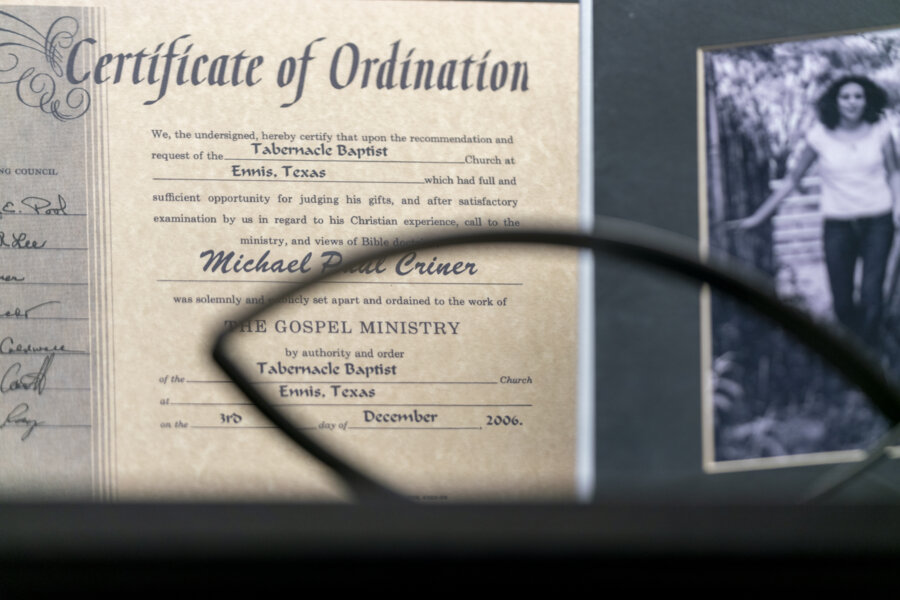
One of the requirements for the MDiv degree during his time at Southwestern was a class on worship, and even though he had similar courses in his undergraduate studies, Criner acknowledges that the worship class he took with Bruce Leafblad, a professor in the School of Church Music and Worship at the time, was one of the “most foundational” classes he took at Southwestern.
“The intensity and the biblical connection to the Old Testament and the New Testament of what worship is was completely transformed under Bruce Leafblad’s class. Completely.”
“So, here’s the big picture: each one of these professors to a degree, brought their subject to life, but helped to connect the dots of why it mattered. And not just that – they cared for me as a person,” Criner recalls. “That’s the impact Southwestern has had for me. It wasn’t just that I was getting theological training; I did. It wasn’t just that I was getting help connecting the dots to the current streams of the culture; we did. But it was that they cared for me as a student and as a person, that changed the game.”
‘A CHURCH NEEDS YOUR LEADERSHIP’
Criner married his college sweetheart, Abigail, before graduating from Southwestern Seminary and together they moved to Lubbock, Texas, where he briefly served as an interim college minister before being called to First Baptist Church of Woodway in Woodway, Texas near Waco, in 2006 as a collegiate minister. When he arrived at First Woodway the college ministry averaged around 40 college students in weekly attendance, and over the course of the nearly six years he served, and as result of faithfulness in proclaiming the Word of God, it grew tenfold.
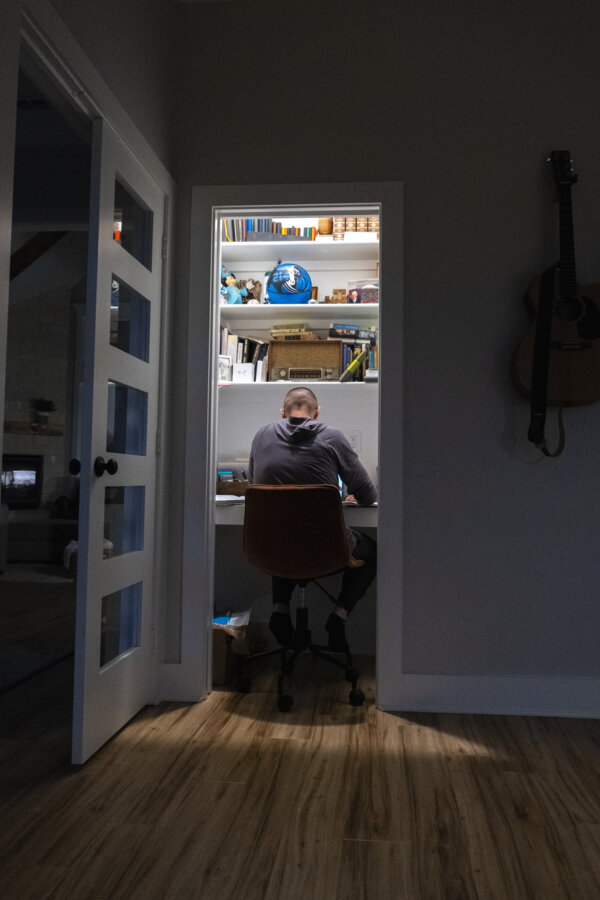
It was under the mentorship of senior pastor Mike Toby at First Woodway that Criner again began to fully realize his call to be a senior pastor that had been so clear at a young age. Toby, who encouraged Criner to pursue a doctorate at Southwestern Seminary, also compelled him to make the move to a church as a senior pastor.
Criner remembers a conversation in which Toby came to him and said, “I want you to be here forever, but I’m telling you a church needs your leadership.”
Emboldened by the affirmation of his mentor and sustained in his call to be a senior pastor, shortly after that conversation God prepared the way for Criner to be called as senior pastor to First Baptist Bellville, Texas, where he would spend eight years with his family. In Bellville, a rural community about an hour west of Houston, Criner learned how to pastor, completed his doctorate at Southwestern Seminary in Christian Worldview and Cultural Engagement, and ultimately grew as a pastor. It was during an annual retreat with some other pastors and their wives, that he began to hear the Spirit saying, “The winds are changing; just be ready.” A month later he received an invitation to consider leading a church in East Texas.
ROCK HILL BAPTIST CHURCH
Rock Hill Baptist Church sits nestled among tall pine trees right off Highway 31 in East Texas – equidistant from the cities of Brownsboro to the west and Chandler to the east. Rock Hill, which was founded in 1857, is in some sense an anomaly when compared with other churches in similar contexts. With a combined population of roughly 4,500 people between the two towns as of the 2020 United States census, a church with more than 1,000 members does not seem like it should exist in the area. But, according to Criner, this is evidence of God’s grace.
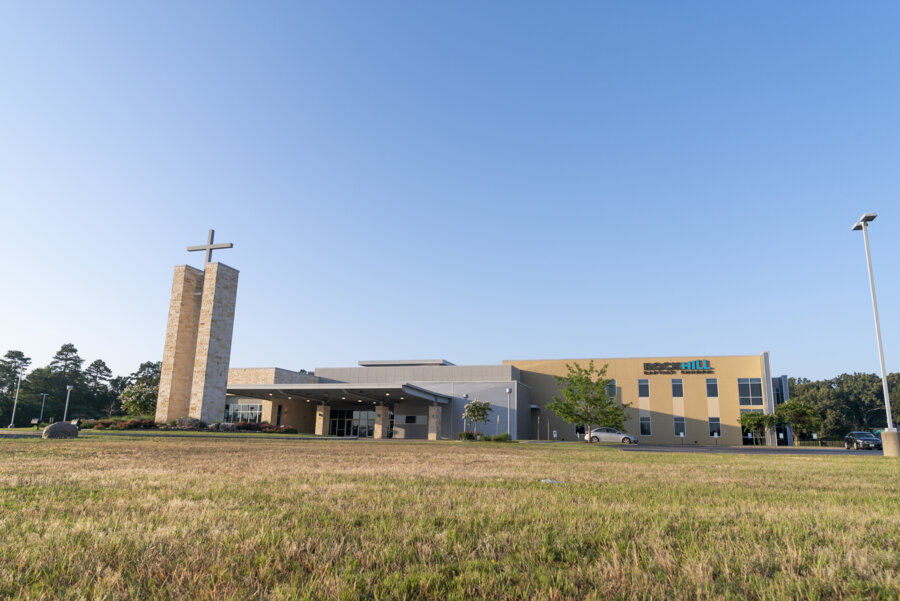
“The growth that it experienced, the baptisms that it has experienced – none of that is possible apart from the Spirit and the movement of God.”
When he arrived at Rock Hill in August of 2019, one of Criner’s main concerns was that he not “mess it up” and that they would continue to see the hand of God upon the church. A little more than six months later he would be faced with some of the most difficult decisions of his life when the global pandemic of COVID-19 hit even this rural part of East Texas.
“I don’t think leadership is built during tough times, I just think it’s delivered during tough times,” Criner said. “It’s revealed.”
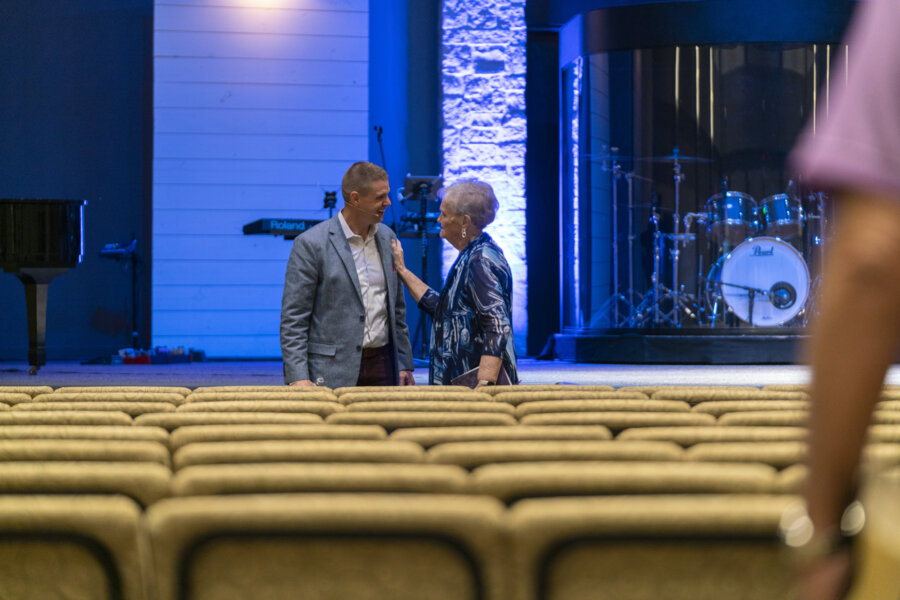
Criner’s leadership as senior pastor of Rock Hill was tested as he recalls having to make major decisions in the life of the church to which he had been called without having been there for very long or having built much trust. But in God’s providence, he came alongside a long-tenured staff. What COVID did in the life of Rock Hill, according to Criner, was it “tested the moxie of people’s buy-in to Rock Hill, to the Gospel, and to the Kingdom — which is what it should be anyway. It exposed in so many of us — where is actually the foundation of Rock Hill?”
Key to the foundation of Rock Hill is Christ at the center of all things; it’s one of the core values of the church and Christ is present in all they do – in preaching, in youth ministry, in adult ministry, kid’s ministry — Christ is at the center. Criner has seen a spirit of evangelism caught by the members of Rock Hill and the Lord continues to bless the church and the community through it.
“We want to declare the Gospel,” Criner said. “And you declare the Gospel not by simply being nice to people or being cordial. You have to verbally explain to people what the Good News is.”
Through regular evangelism classes and staff members modeling how to share the Gospel, Rock Hill is on track to have more baptisms this year than any other year in its 165-year history. The church has seen 17 weeks in a row with at least one baptism and more than 70 people who have come to saving faith in Jesus Christ.
‘YOU CANNOT MAKE IT AT THE RATE YOU’RE GOING’
In February of 2022, Criner began to feel, in addition to the normal stressors of life, the weight and effect of pastoring through COVID-19, navigating staff transitions, and committing to provide foster care as a family for two children with a traumatic background. While he was talking with his wife on the phone one afternoon, Criner began to slur his words and lost all sensation on one side of his face. The symptoms he experienced were serious enough that it warranted an immediate trip to the emergency room with thoughts of the worst diagnosis in mind: a stroke, an aneurysm, or a tumor.
Criner was officially diagnosed with Bell’s Palsy after undergoing a number of tests at the hospital. While relieved a clear diagnosis ruled out other possible life-altering illnesses, his doctor warned that if the situation wasn’t cared for, it could become permanent. His church leadership gathered with Criner and prayed over him and then told him they didn’t want him to do anything, other than to get better, over a period of a least six weeks. As a part of his time away from the church, Criner took the chance to reflect on and change some rhythms in his life.
Three things Criner discovered as a result of his medical setback were that he needed physical rest, soul rest, and also that he needed help. In the days of respite, regrouping, and re-orienting his life to accommodate this new challenge, Criner came to the realization that his current physical setback “was all just affirmation of me not learning that lesson I learned in the canyon.”
“What did the Lord teach me in that time? You’re limited, bro. You cannot make it at the rate you’re going.”
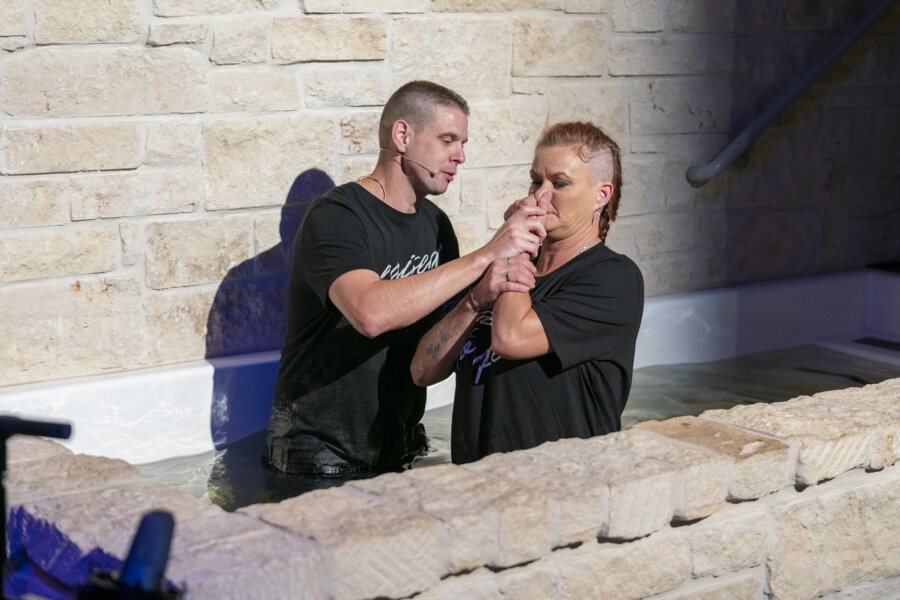
Since returning to Rock Hill after six weeks of rest and recuperation and making a full recovery, Criner has been reinvigorated to empower his staff in a way like he has not before, but also to partner with other churches in the area. The Lord reiterated in his heart that one of Rock Hill’s major roles would be to strengthen neighboring local churches.
Current projections and new homes being built in the city of Chandler indicate that the population will double in the next year. This growth excites Criner and helps cast a vision for how Rock Hill can make a difference for the Gospel in their community, but he recognizes they cannot do it alone.
“There are 33,000 lost people in our own county. If every one of them got saved tomorrow, we cannot fill them in all the churches we have in our county,” Criner said. “So, our burden is to say, ‘How can we make these churches stronger?’ because we actually need more churches, not less.”
“There are churches in the middle of nowhere that nobody’s heard about and they’re seeing baptisms, they’re seeing record attendance, they are growing exponentially. And they won’t be on any preaching circuit, but they’re going to be the churches that are Kingdom movers. So we want to come alongside and strengthen them and encourage them and resource them to be better. Because we’ve had people do that to us — that goes back to pastors investing in me; I want to be a pastor who invests in these next generation of guys.”
By God’s grace and by His Spirit, Rock Hill Baptist Church will continue to reach the lost, strengthen churches, and build the Kingdom in Henderson County and beyond.
Adam Covington (‘09) is senior editor of Southwestern News.
How to avoid running on empty as a pastor
In the days since the COVID-19 global pandemic, pastors have experienced more stress in their roles than ever before. A few tips Criner shared from his own experience and from reading 1 Kings 19 that he hopes others can learn from are:
1. Prioritize physical rest
• Change your sleeping habits; make sure you get enough physical rest.
• The first thing God told Elijah in 1 Kings 19 is “Eat. Sleep.”
2. Get soul rest
• There can be an unhealthy rhythm of straight pouring out.
• Be sure you spend time with God and are poured into.
• “You need more care for your soul than less.”
3. Ask for help
• Be willing to recognize your limitations.
• Don’t be so arrogant as to think you can do everything in your own power.
4. Have something you are working towards
• Set some type of achievement that you can do and that only you can control in that moment.
